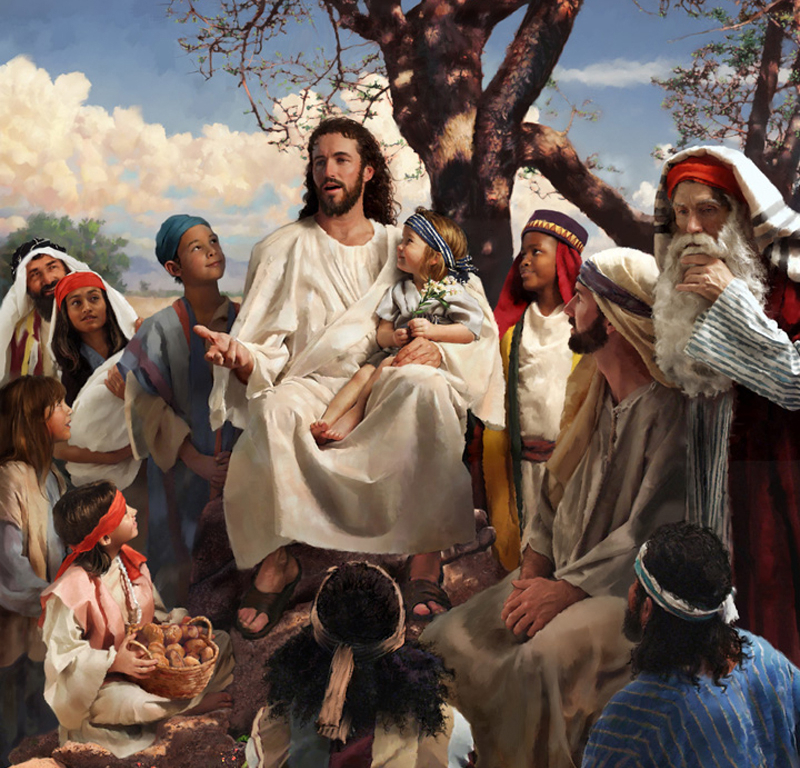
Though I am free and belong to no one, I have made myself a slave to everyone, to win as many as possible. To the Jews I became like a Jew, to win the Jews. To those under the law I became like one under the law (though I myself am not under the law), so as to win those under the law. To those not having the law I became like one not having the law (though I am not free from God’s law but am under Christ’s law), so as to win those not having the law. To the weak I became weak, to win the weak. I have become all things to all people so that by all possible means I might save some.
A few Sundays ago I was in what I suppose passes for my church: an activist space in an old warehouse on the edge of the city. I was there with my partner to train a group of veteran organizers on how to employ creativity and the arts in their activism in order to become more effective political players in our media-saturated, culture-rich world. Standing in front of the organizers, I got to a point in my stock presentation where I introduce Jesus as an example of a creative activist. My proselytizing was of a secular rather than religious nature: it wasn’t the spiritual figure of Christ I was interested in but the purely historical Jesus, a radical Mediterranean Jewish peasant building a revolutionary movement two millennia ago. Jesus, I explained, understood the fundamentals of using story and spectacle, signs and symbols as means to criticize the status quo and offer up an alternative vision. When, for example, he entered the main temple of Jerusalem and overturned the tables of the money changers and sellers of ritual objects he was staging an effective political performance. He could have stood outside and harangued the passerby with his opinions, the ancient equivalent of the activist on the soapbox, but instead he demonstrated his politics though a spectacular act of civil disobedience. Through such an action he not only demonstrated visually and bodily his political ideals, but did it in such a provocative way that news of his deed, and therefore his message, was sure to travel. In modern parlance: Jesus went viral.
I then spoke of Jesus’ use of parables and how, by employing these often oblique stories, he created an opening for his audience to make the message their own. Unlike a list of grievances or demands, easily understood and just as easily ignored, the parables asked listeners to puzzle through the mystery of the stories and their meanings. It was an “invitational form of speech” to quote the Bible scholar Marcus Borg, which does not command, but instead works in its “ability to involve and affect the imagination.” One can almost imagine the scene following an impromptu teaching by Jesus: people walking away, debating amongst themselves exactly what this crazy holy man meant by comparing the kingdom of heaven to a mustard seed. But with every argument and counter-argument, Jesus’ words ceased to be his alone and became the common property of his audience.
Finally, I discussed how Jesus was able to prefigure his vision of a better world tomorrow though creative actions situated in the present day. By sitting down to dinner—a deeply meaningful ritual in Biblical times—with women, tax collectors, sinners and the ill, he enacted in the here and now the egalitarian community he prophesized for the future. Similarly, by entering Jerusalem on a donkey, the titular “Son of God” seated upon a lowly ass, he acted out his ideal of a world turned upside down in which “the last shall be first, and the first last.” Jesus, I concluded, took the ideal of a political “demonstration” quite literally… and thus employed it very effectively.
I was done with this lesson and ready to move on to a discussion concerning the use of creative tactics in the American Revolution when one of the participants raised their hand and asked me if I was a Christian. The question threw me, and I had to think for a moment. I was raised Christian and I know my Bible, my father and grandfather were both ministers and, most other Sundays, I attend a “real” Church with my family. But am I a Christian?
Page 1 of 2 | Next page